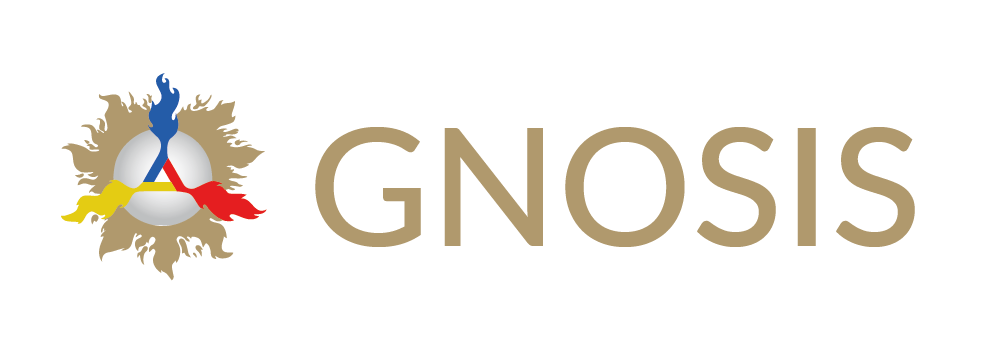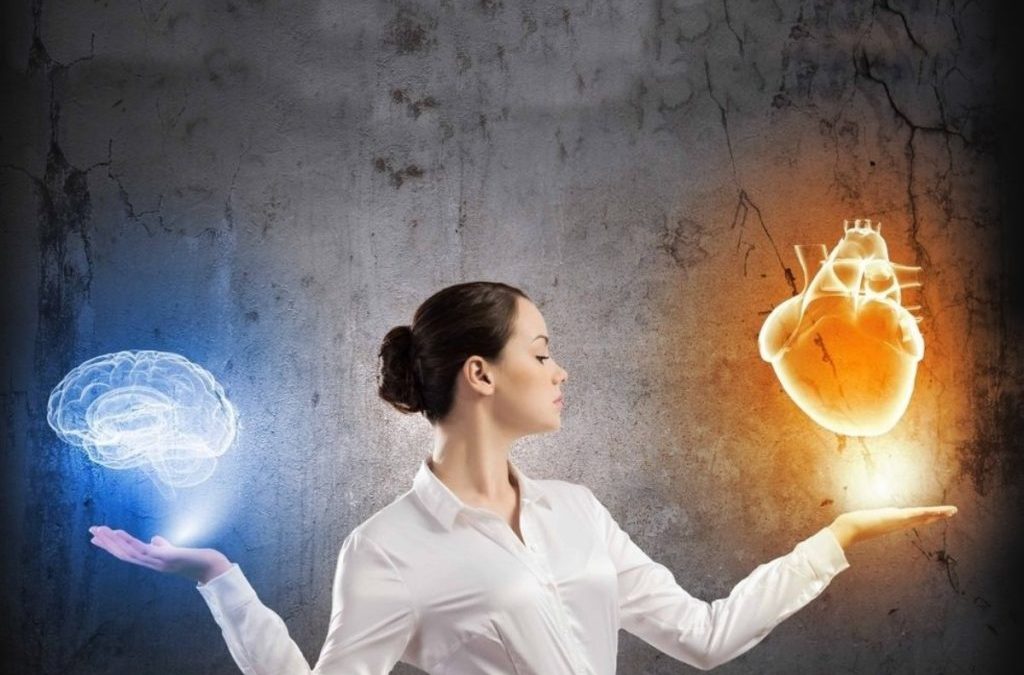
The Secret to Happiness
27 August, 2020
The Holy Books and the One Truth
10 November, 2020The Balance between Being and Knowing
“To be or not to be, that is the question.”
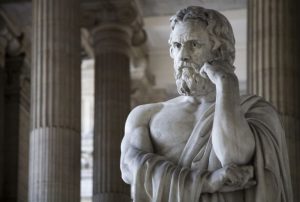 Immortalized by the playwright William Shakespeare, this philosophical question encompasses the intimate conflicts of a person in the face of the uncertainties and dramas of his own life.
Immortalized by the playwright William Shakespeare, this philosophical question encompasses the intimate conflicts of a person in the face of the uncertainties and dramas of his own life.
“Do I endure an injustice silently or shed blood in the name of honor?” “Do I continue to be trapped in lies for fear of what people will say, or do I speak the truth and face the consequences?” “Do I begin a relationship with this person now, or do I protect myself and contain my passion so I can get to know him better?” “Do I continue to live my life as usual, for the sake of my security, or do I dare to change and venture out in search of my happiness?” Have you ever thought of a question like this in your life? More than just academic or intellectual questions, these are related to practical problems of life and the way we live.
In the history of mankind, the tremendous effort of different thinkers to give a satisfactory answer to the question of being is recorded. The result is a collection of volumes of wisdom, which have been compiled, affirmed, and disputed in the process of man’s quest for self-knowledge.
In this sense, many of us believe that, from all this accumulated knowledge, the wisdom of the Being can be learned. However, it is very common that in entering the labyrinth of Knowledge, the person forgets about the Being.
The supposed sage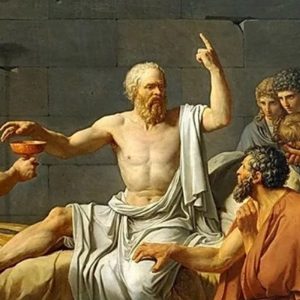
The imbalance between Being and Knowing can produce the profile of the supposed sage: the one who considers his own knowledge as truth. Consequently, he speaks of what he should not and no longer listens to others. Furthermore, he no longer knows how to relate to his fellow human beings. He envies the more gifted ones and looks down on others as if they were mediocre.
Internally, he despises the ignorant and abuses those who do not share his beliefs. Finally, he may even make intrigues and gossip due to disputes over knowledge. He might even read these words, but it does not occur to him that they apply in one way or another to himself.
Or, prompted to examine himself, he would readily advocate on his own behalf, presenting an elaborate defence. Does it seem right that someone should feel wiser than others, but live in conflict with others and be unhappy?
Socratic irony gives us the best answer: this Person not only does not know, but does not even know that he does not know.
The Accumulation of Knowledge
During the course of our life we have accumulated a lot of knowledge. Perhaps we have achieved useful information, cultural knowledge, a means of earning a living, entertainment, peaceful moments of reflection, etc. But how is the matter of our intimate self-realisation after all that? Do we keep wanting to accumulate more knowledge? Do we need more knowledge to solve the stagnation of life and to feel secure within ourselves?
Knowing what we are, what is the use of titles of distinction and higher grades of formal education? What is the use of so much intellectual authority, curricular excellence, discursive formality, terminological complications, long and elaborate speeches, bibliographical references, etc.?
Are we better people? Do we feel more peace? Are we more able to have empathy? Are we happy? what is the use, then, of the knowledge we have accumulated?
The Being
The question of Being cannot be approached from an exclusively intellectual point of view. The search for the Being is a vital and essentially practical subject, and cannot be reduced to an intellectual discussion, however serious and sublime it may be. Because the Being defines himself from instant to instant in the daily course of our life. Through what we do, or do not do in the face of the events that life presents to us.
“The philosophy is to elevate our spirit in order to face the adversities of life.” – V.M. Lakhsmi
Thus, daily events, in all their details, challenge us, test us, and make us aware of our weaknesses and of what is false in us. In this way, it becomes possible, through psychological work on ourselves, to eliminate our ignorance and overcome our weaknesses.
Because, beyond words and good intentions, the Being demands actions and a certain level of behaviour in order to make himself known. We have to be honest with ourselves if we want to know and face the psychological errors that limit us and separate us from the fullness of the Being.
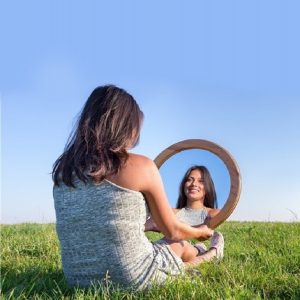 Examining our Conscience
Examining our Conscience
It is useless to talk about love, if in the depths of our hearts we do not tolerate the mistakes and discrepancies of those with whom we live. Or feel like good people, without making the daily effort to correct our defects. It is not honest to revere God within ourselves, if we do not meditate daily to integrate with Him. Or to talk about self-knowledge, without having discovered something about ourselves in the last week. It is a fallacy to feel that we are masters of ourselves, if we have to resort to distractions and sensual pleasures to endure the moments of loneliness we suffer. In short, what matters is what we do and not what we say. The philosophy of being invites us to think less and act more.
The Law is in our conscience, with it we feel the Inner Judgment. If we sincerely pursue an inner reflection on our thoughts, words and deeds, we will feel this inner judgment indicating the path we should follow. In other words, we will discover precisely what we have to do to correct our behaviour, to correct our psychological defects, and thus to achieve the inner realisation of the Being.
“Have you thought about what you like or dislike the most? Have you thought about the secret mechanisms of your actions? Why do you want to have a beautiful house? Why do you want to have the latest car? Why do you always want to be fashionable? Why do you crave not being greedy? What offended you most at a given time? What flattered you most yesterday? Why did you feel superior to so-and-so at a given time? (…) Are you sure that you were sincere in that conversation? When you justify yourself, and when you relate your achievements and repeat to others what you said before, do you understand that you are being vain? “- Samael Aun Weor
“An unexamined life is not worth living,” postulated Socrates, who achieved the feat of swallowing a cup of poison in the name of the very Wisdom to which he devoted his life.
Finding the balance
In conclusion, we will say that balance is one of the keys to success in any person’s life. In everything there must be a balance, just as there is in nature. And the question of Being and Knowledge is no exception to this.
Knowledge is necessary, nobody could deny that reality. However, our society has forgotten the Being, seeking only the accumulation of knowledge. Therefore, an imbalance is produced in the human being that leads him to feel a great emptiness inside. Because he is not in connection with his true Being. Because he has not developed this capacity, this sensitivity.
If we really want to find the meaning of our existence and direct our life towards it. If we really want to find the true reason for living and feel fulfilled in knowing where we are going, then we need to to look for the connection with our real inner Being. For only then can we find those answers. We need to dive into our inner universe and integrate with ourselves. And that is not a fantasy, nor is it just a matter of having good intentions. It is about techniques and concrete practices. To learn about some of them we invite you to our online self-knowledge courses.
